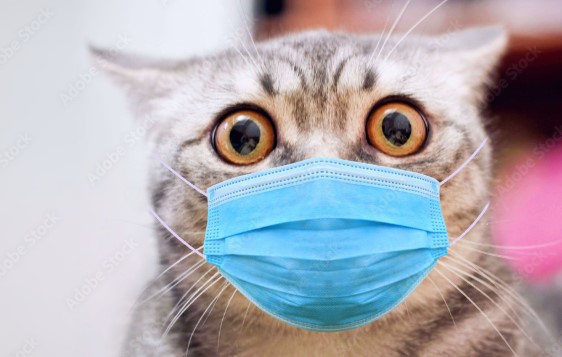WHO Pandemic Treaty sparks sovereignty concerns amid secretive voting and U.S. withdrawal
05/23/2025 / By Willow Tohi

- A total of 124 countries approved a sweeping WHO treaty on May 20, aiming to shape global pandemic responses but facing backlash over opaque voting and eroded sovereignty.
- The WHO’s “show of hands” method drew criticism for lack of transparency, with discrepancies in vote counts and no recorded tallies.
- Eleven countries abstained, citing fears of unelected bodies imposing policies, while the U.S. opted out entirely, weakening treaty credibility.
- The accord grants the global health body authority to govern vaccine approvals, intellectual property waivers and digital health tracking, raising red flags about overreach.
- Critics warn Article 17 empowers the WHO to stifle free speech on public health debates, stifling scientific discourse.
A controversial global pandemic treaty was adopted by the World Health Organization (WHO) on Tuesday, May 20, despite heavy criticism over its undemocratic adoption process, vague legal framework and perceived threats to national sovereignty. The agreement, formally the “Pandemic Accord,” was finalized at the 78th World Health Assembly amid a contentious debate that underscored widening rifts between nations prioritizing local governance and those ceding authority to international institutions.
The vote, held in a committee setting, saw 124 member states vote in favor while 11 abstained — including the U.S., which announced its withdrawal from the WHO last year — as 46 countries were absent. Human rights groups flagged the vote’s transparency, as the WHO used a “show of hands” method without recorded counts. Slovakian representatives, led by Prime Minister Eduard Heger, staged a last-minute bid to force a recorded vote, deeming the process a “charade.”
“This isn’t a schoolyard vote on snacks — it’s a treaty that may redefine how all 194 WHO members treat public health at home,” Heger said in remarks to the assembly, emphasizing Slovakia’s abstention. “Why avoid transparency? What’s hidden here?”
A blueprint for expanded WHO power
The accord’s 30 articles reshape the WHO’s role in global health governance, granting it unprecedented authority. Key clauses include:
- Article 4: Establishes the WHO as the “directing and coordinating authority” with supremacy over national health policies.
- Article 8: Accelerates vaccine approval timelines to 100 days — a drastic reduction from historic five-to-10-year averages—raising concerns about safety and efficacy standards.
- Article 17: Mandates “social listening” tools to counter “disinformation,” critics argue this legalizes censorship of dissenting scientific voices.
- Article 6 and 7: Control over global supply chains and intellectual property waivers, centralizing decisions on vaccine distribution.
Opponents, including U.S. Secretary of Health Robert F. Kennedy Jr., warned the accord enshrines the “failed systems” of the pandemic response, with Kennedy calling the WHO “unfit to dictate policies” to sovereign nations.
The treaty’s provisions align with the WHO’s One Health framework, which integrates animal, environmental and human health. Critics, however, say this expands its remit into sectors like agriculture or climate policy — a reach defenders call necessary for pandemic prevention.
Global stakes: Sovereignty vs. collective action
The treaty’s legitimacy hinges on its ability to compel enforcement, yet its penalties are toothless. Nations are not legally obligated to comply, and the U.S. absence — a major funder of global health initiatives — draws skepticism about its practical impact.
“Without U.S. participation or binding enforcement, the treaty becomes a symbolic gesture,” said independent journalist Lewis Brackpool, author of a thread dissecting the accord. “Meanwhile, it grants unelected bureaucrats extraordinary power over borders, data and healthcare.”
Proponents, including WHO chief Tedros Adhanom Ghebreyesus, insist the pact ensures “equitable access” to vaccines and medicines, rectifying past inequities during the pandemic. But skeptics note the WHO’s ties to big pharma and private foundations like the Bill & Melinda Gates Foundation, which collectively fund 30% of its budget.
“The WHO isn’t a neutral body—it’s shaped by donors with profit motives,” said Dr. Meryl Nass, an independent advisor. “Handing it more control without/transparency is reckless.”
Looking ahead: A fragile new order
The accord must still agree on an annex for pathogen information sharing, expected to take a year, before finalizing implementation. Its future depends on how member states balance global cooperation against local autonomy.
For now, the treaty’s approval has amplified calls for congressional oversight of global health agreements in nations like the United States. Delegates from abstaining states echoed similar demands, warning of the “slippery slope” toward centralized governance.
As the WHO celebrates a “milestone” for multilateralism, its detractors vow to ensure the accord does not become a template for eroding democracy — and their fight for transparency and sovereignty has just begun.
Sources for this article include:
Submit a correction >>
Tagged Under:
. vaccines, big government, Censorship, disinformation, global health, Globalism, health freedom, intellectual property, Liberty, Medical Tyranny, medical violence, national security, pandemic response, RFK Jr, sovereignty concerns, supply chains, Tyranny, vaccine wars
This article may contain statements that reflect the opinion of the author





















